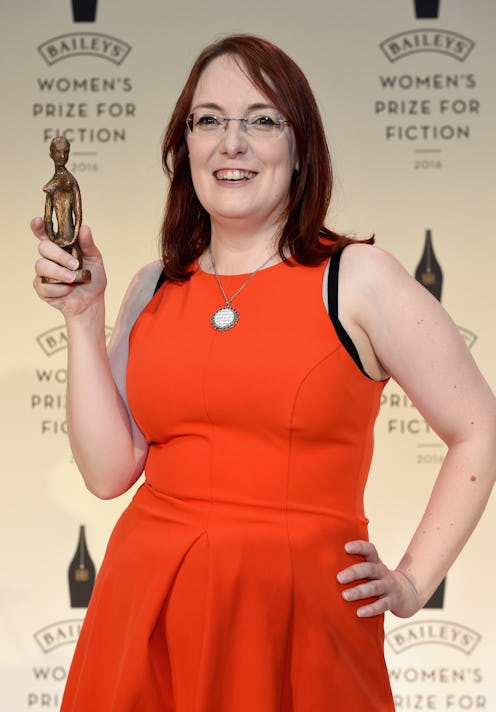Lisa McInerney's The Glorious Heresies has won the 2016 Baileys Women's Prize for Fiction. The novel about five people on the fringes of Irish society beat out two Man Booker Prize nominees: The Green Road by Anne Enright and A Little Life by Hanya Yanagihara. McInerney takes home a £30,000 award and a bronze figurine known as "The Bessie."
Founded in 1996, and originally known as The Orange Prize for Fiction, the Baileys Women's Prize for Fiction began as a response to the 1991 Booker Prize shortlist, which included no women writers. Unlike the Booker Prize, the Baileys has been open to writers around the globe since its inception. Previous winners include Eimear McBride's A Girl Is a Half-Formed Thing, Téa Obreht's The Tiger's Wife, and Chimamanda Ngozi Adichie's Half of a Yellow Sun.
Although The Glorious Heresies is McInerney's debut novel, this isn't the first time she's been recognized for her writing. In 2009, her now-defunct Arse End of Ireland blog won the prize for best humor at the Irish blog awards.
Despite lacking the accolades of some of its competitors, The Glorious Heresies made a clear impression on the Baileys judges. Chair of judges Margaret Mountford called the novel "superbly original," while Foyles' Frances Gertler said McInerney was:
...the least conventional and edgiest writer on the list, whose big, gritty and compelling novel about Ireland’s dark underbelly features a cast of alcoholics, drug dealers and prostitutes, leaving a trail of sex, violence and crime in their wake.
McInerney says her novel brought in comments about "how 'male' it was, and that it was no wonder its jacket sported quotes from male writers." Seemingly frustrated by the unnecessary gendering of her novel, McInerney wrote in a short essay for Arena, RTE Radio 1's arts show:
I am enormously proud that Heresies has been shortlisted for the Baileys Women’s Prize for Fiction for this reason: any initiative that focuses solely on women’s work immediately negates the need to think about, be derailed by, or make concessions for gender.
Mountford headed up a panel that included Elif Shafak, Naga Munchetty, Laurie Penny, and Tracey Thorn. The judges were unanimous in their decision.
